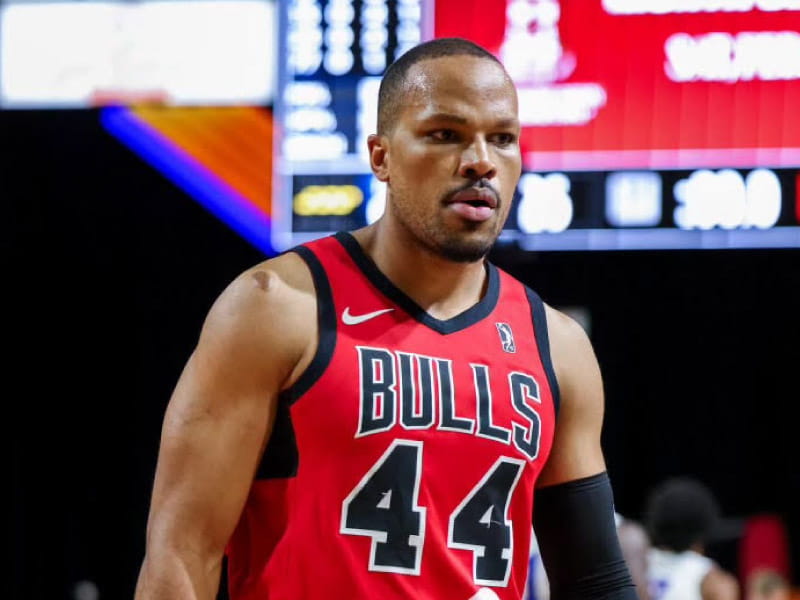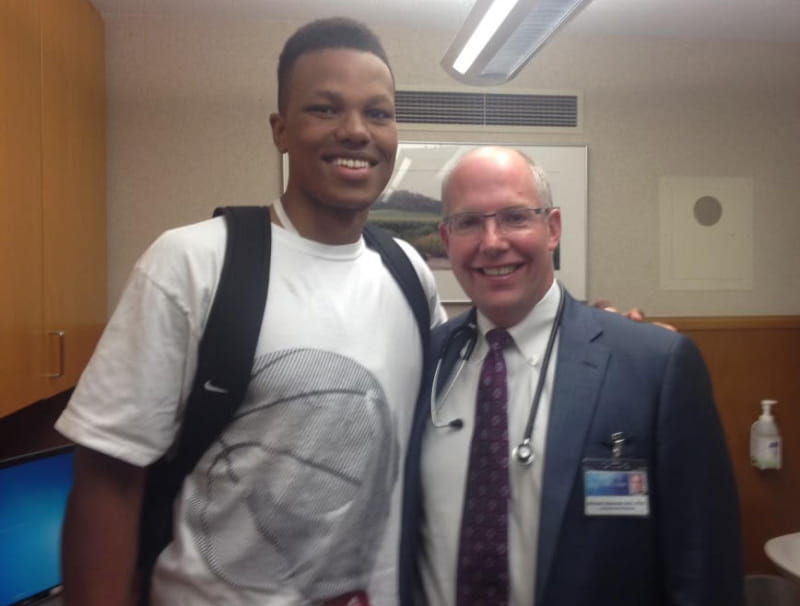Abnormal heart exam almost ended NBA hopeful's basketball career
By Emily Halnon, 91ÊÓƵ News

As a high school junior in Grand Rapids, Michigan, 6-foot-9 Lacey James had drawn the attention of many college basketball scouts. Then he began to cough.
A case of bronchitis sent him to the hospital. That led to a chest X-ray and an electrocardiogram, or EKG, a test that examines the electrical signals from the heart.
When his EKG results came back, his doctor noticed something wasn't right, so he referred James to a specialist.
The specialist did more testing and confirmed there was an abnormality with his heart, although it was unclear exactly what the problem was. James was told to stop playing basketball and cease all athletic activity.
I can't do that, James thought.
"I came out of the womb playing basketball," he said. "I'd spent all of high school working toward a basketball scholarship and all I wanted to do was play the game."
James immediately wanted a second opinion. He hadn't experienced any symptoms and didn't have any known risk factors for heart issues. He wasn't ready to end his promising basketball career without a better explanation.
James got a second opinion. And then a third. And a fourth. All advised him to stay off the court – yet none could specify why, only that they knew something seemed wrong.
He decided to try one last doctor before giving up. He'd heard that Dr. Michael Ackerman, a cardiologist at Mayo Clinic, had worked with a number of athletes and had done research in sports and cardiology.
James and his mother, Karie James, went to Rochester, Minnesota, to see Ackerman. After two days of testing, Lacey and Karie sat in the waiting room and prayed for good news.
"I knew he would be the final stop," Lacey said. "He's a specialist, he's done research in the field, I was ready to respect his decision.
"And I knew if he didn't clear me, I would never play basketball again."

Ackerman delivered two life-changing pieces of information.
First, a diagnosis: "You have moderate case of hypertrophic cardiomyopathy," Ackerman told Lacey.
Then, a prognosis: "And I can clear you to play basketball."
Hypertrophic cardiomyopathy is a condition where the walls of the heart chamber are thickened and can reduce blood flow to and from the heart. Because Lacey's case was on the milder side of the spectrum, Ackerman said it was safe for him to return to full physical activity, but he needed annual checkups to monitor his heart.
So that's what Lacey did.
He went on to play four seasons for Northern Illinois University and visited Ackerman for his annual checkups. He also did all he could to maintain good heart health – he ate well, didn't drink and, of course, got plenty of physical activity.
After college, Lacey wasn't drafted by an NBA team. But he was offered the next best thing – a spot on the Westchester Knicks of the NBA G League, the official minor league organization of the NBA.
When he disclosed his heart issues, the league wouldn't clear him to play. He sat out a full season while NBA officials considered his medical case. He eventually won and now plays for the Windy City Bulls, the NBA G League affiliate of the Chicago Bulls, keeping alive his hopes of making it to the NBA.
After having his dreams almost squashed multiple times, Lacey, now 27, believes his time on the court is meant for a greater purpose. He hopes to use basketball as a platform to reach people – including the next generation.
"It's all made me stronger and hardened my faith that I'm meant to use basketball to make a difference," he said. "I keep working hard on the court to inspire others and to help create opportunities for kids to get excited about the game."
"It's been a rough path," Karie said. "But he keeps climbing mountains and fighting to get back on the court where he belongs.
"I tear up every time I see him warming up for a game because I know how hard he's worked to get there."

Stories From the Heart chronicles the inspiring journeys of heart disease and stroke survivors, caregivers and advocates.

